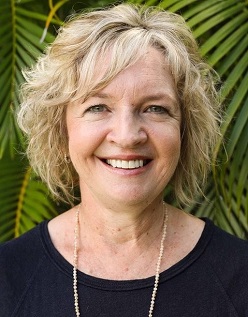Are you tired of experiencing drama in relationships?
It might be your relationship with your partner, family members, friends, work colleagues, acquaintances … or it might seem to impact all of them!
Or is there one particular relationship in your life that seems to involve one drama after another?
Chances are you are feeling worn out, frustrated, or that you have no say or no way of communicating.
Other feelings that commonly show up in a relationship drama include anger, guilt, resentment, entitlement and hopelessness; while typical behaviours include blaming, complaining, pitying, manipulating and guilt provoking.
The Drama Triangle
If you are experiencing any of these feelings or noticing these behaviours, you may be caught in a drama relationship.
This is often driven by 2-3 people and consists of the role each person may be falling into, within these relationships. The three main roles that are present when there is drama in relationships, to create the ‘Drama Triangle’, are:
- The Rescuer;
- The Victim;
- The Blamer/Bully.
In a relationship, we tend to move around the triangle taking on each of these three different roles, until one person decides to change and move out of the triangle.
Do you want the drama to stop?
I’m sure you do!
In order to end drama in relationships, it is helpful to recognise what role you are in, and then to find ways of stepping out of the relationship drama/triangle to communicate in a clearer way.
There is help available! I am passionate about seeing relationships restored, and for you to find strategies to communicate in healthier ways, which build stronger and lasting relationships. I believe we are created to be in relationship – not one that is filled with drama! – but relationships that are empowering.
The Empowerment Triangle
Empowering relationships bring feelings of passion and purpose, hope and self-empowerment.
Through counselling we will explore nine dynamics which are related to both The Drama Triangle and The Empowerment Triangle. These are:
- Goals and outcomes;
- Typical behaviours;
- Feelings;
- Power;
- Responsibility;
- Relationship boundaries;
- Expectations of self;
- Expectations of others; and
- Actions.
If you would like to explore ways of achieving harmony in your relationships, creating healthier boundaries and effecting positive change, you can phone to make an appointment and I will be committed to helping you in this process.
 Author: Fiona Muller, B Soc Sc, Major in Counselling; Member of PACFA and CCAA.
Author: Fiona Muller, B Soc Sc, Major in Counselling; Member of PACFA and CCAA.
Fiona provides relationship counselling from two Brisbane locations: Vision Psychology Wishart, and M1 Psychology Loganholme. Having previously worked with women’s groups, aged care, child care, pre-marriage counselling and community outreach programs, and herself married for nearly 30 years with two young adult children, Fiona’s experiences have given her a greater understanding and empathy of the many challenges and losses that life brings.
To make an appointment try Online Booking. Alternatively, you can call Vision Psychology Wishart on 3088 5422 or M1 Psychology Loganholme on (07) 3067 9129.